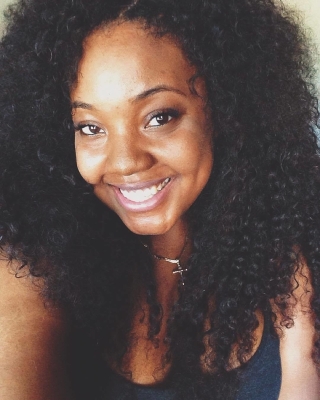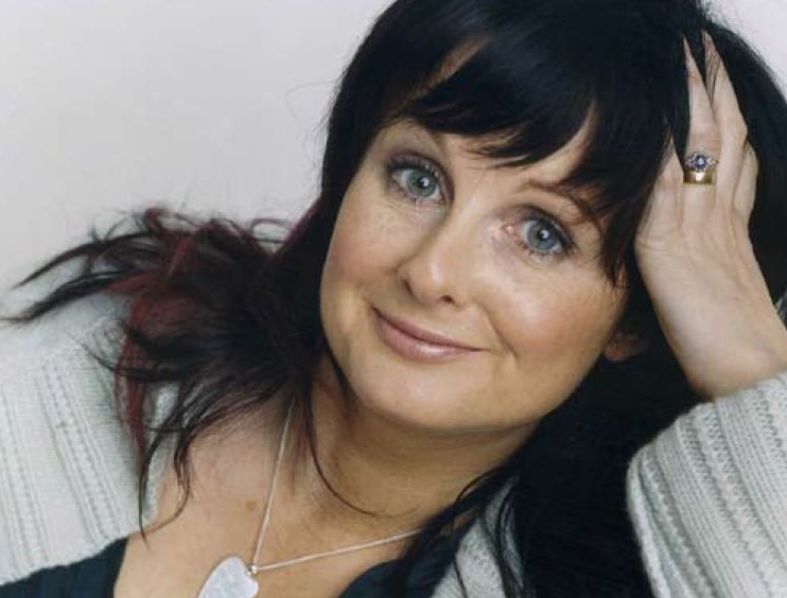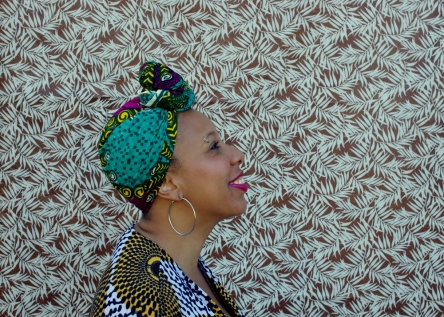In the media is a fortnightly round-up of features written by, about or containing female writers that have appeared during the previous fortnight and I think are insightful, interesting and/or thought provoking. Linking to them is not necessarily a sign that I agree with everything that’s said but it’s definitely an indication that they’ve made me think. I’m using the term ‘media’ to include social media, so links to blog posts as well as as traditional media are likely and the categories used are a guide, not definitives.

What else can begin this fortnight’s coverage?
- Lindy West, ‘Blaming political correctness for Trump is like blaming the civil rights movement for Jim Crow‘ in The Guardian
- Rebecca Traister, ‘Shattered‘ in The Cut
- Various, ‘Waking Up in Trump’s America, Part 1‘ in The New Enquiry
- Dayna Tortorici, ‘What Can Feminists Do?‘ on n+1
- Elizabeth Drew, ‘How It Happened‘ in The New York Review of Books
- Mira Jacob, ‘Here’s What I’m Telling My Brown Son About Trump’s America‘ on Buzzfeed
- Sarah Churchwell, ‘Hillary Clinton didn’t fail us. We failed her‘ in The Guardian
- Various on the US election in The Guardian
- Michelle Dean, ‘Don’t Stop Believin’‘ in New Republic
- Linda Mannheim, ‘after the shock waves of the us elections, how do we locate ourselves?‘ on 3:am
- Heather Wells Peterson, ‘What Can Art Do After Trump?‘ on Literary Hub
- Masha Gessen, ‘Autocracy: Rules for Survival‘ in The New York Review of Books
- Garnette Cadogan, ‘Staying and Fighting, and Finding Strength in Poetry‘ on Literary Hub
- Leslie Jamison, ‘The Day After Trump Won‘ on Granta
- Nicole Chung, ‘The Day After The Election, I Told My Daughter The Truth‘ on Buzzfeed
- Bim Adewunmi, ‘What Is America So Afraid Of?‘ on Buzzfeed
- Laurie Penny, ‘On the Election of Donald J Trump‘ in The New Statesman
- Ashley Weatherford, ‘If Trump Scares You, You’re Getting a Glimpse of What It Feels Like to Be Black in America‘ in The Cut
- Ann Friedman, ‘Finish Your Ugly-Crying. Here’s What Comes Next.‘ in The Cut
- Gloria Steinem, ‘After the election of Donald Trump, we will not mourn. We will organize‘ in The Guardian
- Lindy West, ‘Her Loss‘ in The New York Times
- Lola Okolosie, ‘How to tell the children about Trump? After all, they deserve the truth‘ in The Guardian
- Maureen Langloss, ‘It’s A Man’s World‘ on her blog
- Ayahna Hamilton, ‘“Progress”, Black Women and the US Presidential Election‘ on gal-dem
- Hadley Freeman, ‘I’ve heard enough of the white male rage narrative‘ in The Guardian
- Sarah Ditum, ‘Donald Trump has grabbed America by the pussy, and it’s women who will suffer‘ in the New Statesman
- Amelia Tate, ‘Control, Alt-Right, Retweet: How social media paved the way for President Trump‘ in the New Statesman
- Anne Enright, ‘Never has male anatomy been so waved about in politics‘ in The Irish Times
- Allison Pearson, ‘Why misogyny was The Donald’s trump card‘ in The Telegraph
- Maya Goodfellow, ‘Make no mistake – Donald Trump’s victory represents a racist “whitelash”‘ in the New Statesman
- Caroline Crampton, ‘Voting for Trump and Brexit: what the working class revolt is really about‘ in the New Statesman
- Kelcey Parker Ervick, ‘How We Talk About Women’s Lives‘ on Literary Hub
- Joanna Walsh, ‘Time to reclaim language: words are more important than ever in the age of post-truth politics‘ in the New Statesman
- Bridget Minamore, ‘As a woman of colour I foresaw Trump was going to win‘ on The Pool
- Nicole Chung, ‘Parenting the Election‘ on Hazlitt
- Chloé Cooper Jones, ‘Miami Dispatch: Unmoored Realities on the Campaign Trail‘ on Medium
- Pamela Newkirk, ‘The Myth of a Post-Racial America‘ on Literary Hub
- Susan Straight, ‘I Drove 3,582 Miles to Vote for the President‘ on Literary Hub
- Nicole Dennis-Benn, ‘My First Visit to the Church of American Democracy‘ on Literary Hub
- Lauren Elkin, ‘Donald Trump, Anti-Flaneur‘ on Literary Hub
- Barbara Kingsolver, ‘End this misogynistic horror show. Put Hillary Clinton in the White House‘ in The Guardian
- Jill Filipovic, ‘The Men Feminists Left Behind‘ in The New York Times
- Jessa Crispin, ‘Madam Prescient‘ on The Baffler
- Nikole Hannah-Jones, ‘Trump’s Inconvenient Racial Truth‘ in The New York Times
- Olga Khazan, ‘The Lasting Harm of Trump-Style Sexism‘ on The Atlantic
- Chimamanda Ngozie Adichie, ‘What Hillary Clinton’s Fans Love About Her‘ in The Atlantic
- Isabel Fonseca, ‘Voters, guns and hurricanes‘ in The TLS
- Rebecca Solnit, ‘New York City Is a Book Conservatives Should Read‘ on Literary Hub
- Emily Harnett, ‘On the Horror of Language, and the Horror of Trump‘ on Literary Hub
- Elaine Showalter, ‘Pilloried Clinton‘ in the TLS

Photograph by Nye’Lyn Tho
The best of the rest:
On or about books/writers/language:
- Aminatta Forna, ‘The Many Ways in Which the Heart Can Break‘ on Literary Hub
- Martha Greengrass, ‘Running with the Wolves: An Introduction to The Bloody Chamber‘ on Waterstones
- Jenn Ashworth, ‘A moment that changed me: stealing the book that saved my life‘ in The Guardian
- Sabina Murphy, ‘What Can Historical Fiction Accomplish that History Does Not?‘ on Literary Hub
- Anna Wilson, ‘Full-body Reading’ on Aeon
- Saba Imtiaz, ‘Searching for a 14th-Century Scribe in Modern Jordan‘ on Literary Hub
- Sara Schaff, ‘When Your Characters Live Inside Your Childhood Home‘ on Literary Hub
- Kathy Gale, ‘Successful Women‘ in The Bookseller
- Naomi Frisby, ‘Coverage of Experimental Fiction Writing Is a Half-Formed Thing‘ on Tilted Axis
- Gabrielle Bellot, ‘A Young Woman Called Death…‘ on Literary Hub
- Gaby Wood, ‘Elena Ferrante: how to see an invisible author‘ in The Telegraph
- Elena Ferrante, ‘I believe that books, once written, have no need of their authors‘ in The Observer
- Miranda Carter, ‘Dining with death: crime fiction’s long affair with food‘ in The Guardian
- Linda Grant, ‘I can’t write after lunch, in a public place, or when anyone is in the house‘ in The Guardian
- Arisa White, ‘In Praise of Our Black Women Poets‘ on Literary Hub
- Natalie Jerome, ‘Dear next generation…‘ in The Bookseller
- Candice Carty-Williams, ‘I’m Temi? I’m Temi from The Glamma Kids, you know?‘ in The Bookseller
- Margaret Busby, ‘Is it still a case of plus ça change?‘ in The Bookseller
- Ama Josephine Budge, ‘We must constantly question what our own agenda might be‘ in The Bookseller
- Kelsey McKinney, ‘Out of Print: The Original Nancy Drew Novels‘ on Lenny
- Sara Nović, ‘What Does an Artist Look Like?‘ on The James Franco Review
- A.J. Ashworth, ‘Introducing Writers on Rejection: A new series‘ on her blog
- Sarah Domet, ‘The Search for Home in American Fiction‘ on Literary Hub
- Alexander Chee, ‘Elena Ferrante, Private Novelist‘ on New Republic
- Emma-Jane Kirby, ‘Open to Ghosts: Writing The Optician of Lampedusa‘ on Waterstones’ blog
- ‘Virago publishers share the books that made them feminist‘ in Stylist
- Carina del Valle Schorske, ‘On the Perilous Potential of Feminist Silence‘ on Literary Hub
- Elaine Blair, ‘Elena Ferrante: Hiding in Plain Sight‘ in The New York Times
- Tanya Landman, ‘The MPs’ expenses scandal breathed life into history‘ in The Guardian
- Elena Ferrante, ‘What An Ugly Child She Is‘ in The New Yorker
- Lennie Goodings, ‘Feminism, pornography and lots of crying in the loos: 43 years of Virago‘ in The Telegraph
- Lyz Lenz, ‘Why We Love to Be Haunted‘ on Literary Hub
- Evie Gaughan, ‘Gender Bias in the Literary World‘ on Women Writers, Women’s Books

Personal essays/memoir:
- Rachel Klein, ‘When the Body Breaks Its Silence‘ on Catapult
- Cari Luna, ‘Under Threat of the Really Big One‘ on Catapult
- Millissa Kingbird, ‘Woman Standing at Rock‘ on The Rumpus
- Nancy Matson, ‘My Low-Wage Job at the Circus‘ on Catapult
- Amy Zhang, ‘Lotus Pods and Jambalaya in Jianguomen: Memory and Change in a Beijing Neighborhood‘ on Catapult
- Salley Vickers, ‘I didn’t love my mum enough to kill her‘ in The Times (£)
- Holly Müller, ‘Fascism and Its Echoes, and the Othering of the Mentally Ill‘ on Literary Hub
- Deborah Jackson Taffa, ‘This American Paradise‘ on The Rumpus
- Jacqueline Doyle, ‘What Did You Say?‘ on Medium
- Deepti Kapoor, ‘All the Things I Thought About When We Were Naming My Nephew (aka A गुलाब by Any Other Name; aka Song for Kian)‘ on Catapult
- Emma Sloley, ‘Nudists Always Play Volleyball‘ on Catapult
- Kally Mays, ‘We, the Hunted: Dogs, Resistance, and Survival‘ on Catapult
- Merritt Tierce, ‘Carved in Wood‘ on The Paris Review
- Louise Penny, ‘The Last Promise‘ on AARP
- Susan Straight, ‘Every Month Is Black History Month‘ on Literary Hub
- Mariam, ‘So, What Generation Immigrant Are You?‘ on Femsplain
- Scaachi Koul, ‘There’s No Recipe For Growing Up‘ on Buzzfeed
- Emma Straub, ‘Teenage Dream‘ on Tin House
- Mikella Clements, ‘When Your Family Business Isn’t a Family‘ on Catapult
- Helena Fitzgerald, ‘The Accidental City‘ on Catapult

Feminism:
- Sharine Taylor, ‘Body Politics: Beyoncé, Teyana Taylor, and the Liberation of Black Women Through Dance‘ on Noisey
- Mila Kunis, ‘You’ll Never Work In This Town Again…‘ on A Plus
- Olga Khazan, ‘A Diary of Toxic Love‘ on The Atlantic
- ‘Stanford Sexual Assault Case Survivor Emily Doe Speaks Out‘ in Glamour
- Ashley Nelson Levy, ‘Of Course By Now You Know This Story‘ on Catapult
- Megan Garber, ‘How Rom-Coms Undermine Women‘ on The Atlantic
- Claire Heuchan, ‘For the White Woman Who Wants to Know How to be My Friend: A Black Feminist Guide to Interracial Solidarity‘ on Sister Outrider
- Caroline O’Donoghue, ‘There will always be a place in the world for witches‘ on The Pool
Society and Politics:
- Marian Bull, ‘California Dreaming‘ on Eater
- Antonia Juhasz, ‘Inside the Battle Over the Dakota Access Pipeline‘ in Pacific Standard
- Paris Lees, ‘Punching Bags‘ on Vice
- Amy Wollard, ‘Tent Revival‘ on VQR
- Marilynne Robinson, ‘Against Oligarchy‘ on Literary Hub
Film, Television, Music, Art, Fashion and Sport:
- Dafna Izenberg, ‘In The Air Again‘ on Hazlitt
- Alana Massey, ‘Your Brands and Lovers‘ on Real Life
- Amber Butchart, ‘Why our love affair with leopard print is never going to die‘ on The Pool
- Soraya Roberts, ‘Adrienne Shelly Will Take You There‘ on Hazlitt

The interviews/profiles:
- Jillian Tamaki on Room
- Jenn Ashworth on Wales Arts Review
- Zadie Smith in The Bookseller, Vanity Fair and The Telegraph
- Belle Boggs on The Rumpus
- Anakana Schofield in the New Statesman and on The Writes of Woman
- Malka Older on The Rumpus
- Helena Kelly in The Bookseller
- Sarah Ladipo Manyika in the New Statesman and on The Writes of Woman
- Eimear McBride in the New Statesman
- Rachel Cusk in the New Statesman
- Eleanor Hooker in The Irish Times
- Petina Gappah in The Guardian
- Dodie Bellamy in The White Review
- Alexandra Kleeman in Guernica
- Jade Chang on Electric Literature
- Esmé Weijun Wang on The Rumpus and Catapult
- Ann Patchett in Guernica
- Michelle Tea in BOMB Magazine
- Vi Khi Nao in Electric Literature
- Therese Oneill on The Millions
- Kelly Luce on Electric Literature and Tin House
- Fanny Howe on Literary Hub
- Jane Alison on The Rumpus
- Jasna Ani on Words Without Borders
- Wendy C. Ortiz on Electric Literature
- Cristina Sánchez-Andrade on Bookanista
- M.J. Carter on From First Page to Last
- Anne Carson in The Guardian

The regular columnists:
- Laurie Penny in The New Statesman
- Lucy Mangan in Stylist
- Roxane Gay in The Guardian US
- Yasmin Alibhai-Brown in The Independent
- Caitlin Moran in The Times
- Lauren Laverne in The Pool
- Ella Risbridger in The Pool
- Sali Hughes in The Pool
- Bim Adewunmi in The Guardian
- Sophie Heawood in The Guardian
- Eva Wiseman in The Observer
- Tracey Thorn in The New Statesman
- Chimene Suleyman and Maya Goodfellow on Media Diversified
- Josie Pickens on Ebony
- Bridget Christie in The Guardian
- Lizzy Kremer on Publishing for Humans
- Juno Dawson in Glamour
- Kashana Cauley on Catapult
- Louise O’Neill in the Irish Examiner
- Jendella Benson on Media Diversified
- Lola Okolosie in The Guardian
- Sarah Gerard, ‘Mouthful‘ on Hazlitt
- Books by Women We’d Love to See in English on Literary Hub










 Photograph by Kwesi Abbensetts
Photograph by Kwesi Abbensetts
















